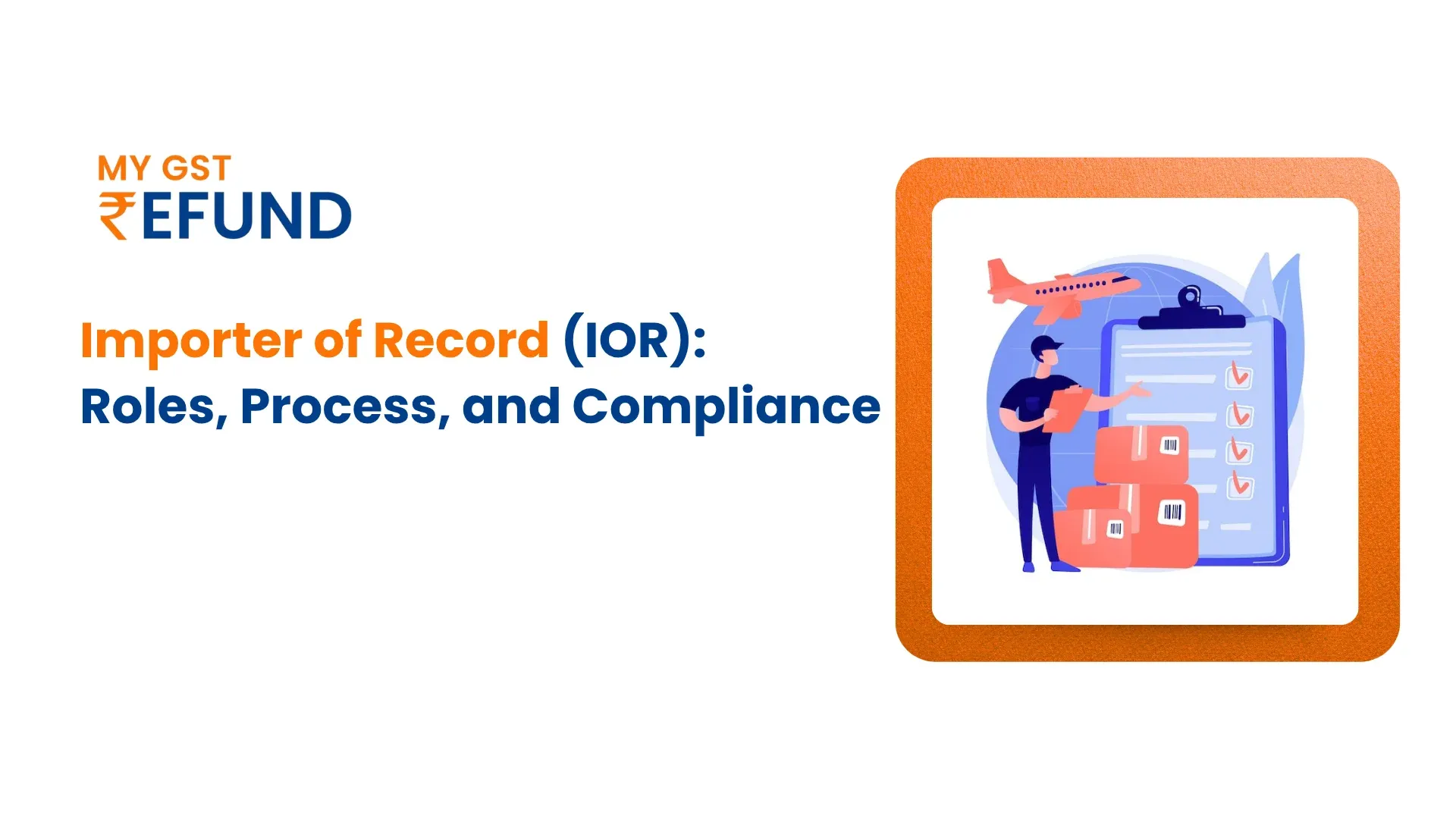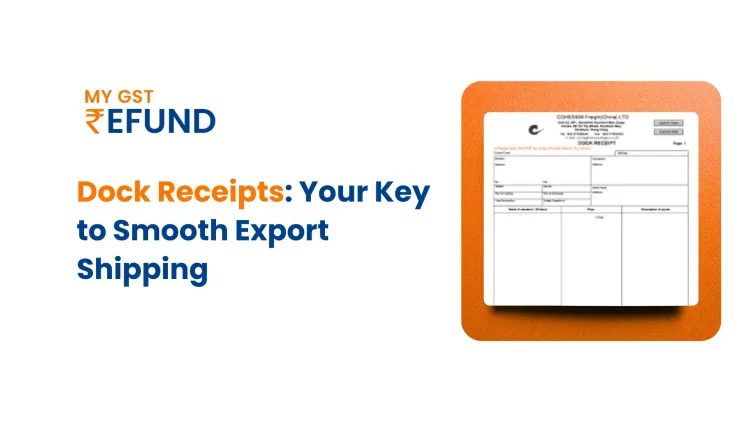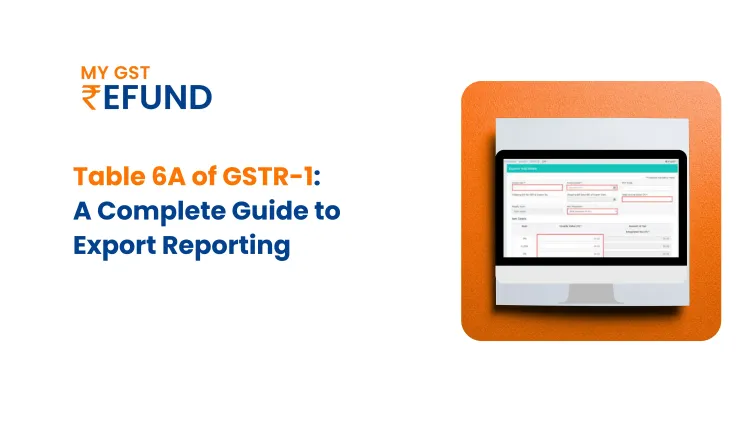Importer of Record (IOR): Roles, Process, and Compliance
In International trade, it is important to follow all types of important documents and regulatory procedures, not only at customs clearance in the country of origin, like India, but also at the country of destination. To manage the global supply chain effectively and ensure all import-related compliances are fulfilled, the role of the Importer of Record becomes crucial.
This blog provides a comprehensive overview of the Importer of Record (IOR), including its function, the import process, and the overall importance of the IOR in global trade.
What Is an Importer of Record (IOR)?
An Importer of Record (IOR) is an individual who makes sure all imported products are documented and meet their legal requirements as required by the Customs Authority.
An IOR would ensure that goods are properly classified, accurate documents are filed, payment of duties, tariffs, and taxation, and the securing of required licenses and permits regarding a specific imported shipment.
The inspection and clearance done by an IOR is crucial as it helps detect any unlawful activities, while also regulating the payment of import duties. In the United States, the Customs and Border Protection (CBP) introduced the role of IOR to secure imports from threats and ensure the payment of duties on all imported goods.
Why the IOR Role Matters?
An Importer of Record holds many responsibilities in streamlining shipping services, like fulfilling the requirements of the customs department and ensuring all the entry documents are ready. The Importer of Record ensures:
- Handling Important Documentation.
- Initial verification and classification of the goods imported.
- Temporary Ownership of the consignment until the imported goods are fully cleared and accepted for final delivery.
- Timely payment of tariffs and duties, and other required fees.
- Managing Customs Procedure
- Shipments may be delayed, seized, or returned, leading to additional costs and reputational damage without a valid IOR. In some countries, importing without a designated IOR is illegal.
Who Can Act as an Importer of Record?
An Importer of Record can be:
- Customer: The individual who ultimately owns or receives the imported products.
- Exporter: An individual responsible for exporting goods.
- Consignee: The designated individual is receiving the shipment. A consignee can also be the Importer of Record if they are importing goods for internal use and assume compliance obligations.
- Custom Broker: A specialised, legally hired individual responsible for handling the documentation during customs clearance can be appointed as the Importer of Record on behalf of the importer.
Importer of Record vs. Related Roles
It’s easy to confuse the Importer of Record with similar roles in the import-export ecosystem.
Here's how they differ:
IOR vs. Customs Broker:
A custom broker is an agent that is external to the business. The broker is responsible for handling the documentation and other paperwork needed to clear goods through customs.
On the other hand, the Importer of Record retains full responsibility for compliance, paying duties with legal requirements, and having temporary ownership of the consignment until the imported goods are fully cleared for final delivery.
IOR vs. Consignee:
The consignee is the owner and recipient of the imported goods. They typically take ownership of the goods after customs have cleared them and are usually responsible for distribution.
While IOR is responsible for ensuring that all the goods are cleared and checked by customs, it addresses all the legal requirements.
IOR vs. Exporter of Record (EOR):
An Exporter of Record is a legal entity responsible for all legalities, including required documentation, payment of duties for exporting products, and managing the rules surrounding shipments leaving the country. An Importer of Record is the entity that looks after the importation side.
In international transactions, both IOR and EOR work together to ensure that the transportation of goods is done effectively.
Key Responsibilities of an Importer of Record
The key responsibilities of an Importer of Records are as follows:
- Ensuring that all import documentation is correct and that all legalities have been considered
- Paying all applicable customs duties, taxes, and penalties..
- Classifying and evaluating goods.
- Obtaining responsibility for goods at the time of import for accuracy and accountability.
- Ensuring goods comply with safety and regulatory standards.
The IOR Process: Step-by-Step
The Importer of Record (IOR)process refers to the procedures and responsibilities involved in legally importing goods into a country. The steps are as follows:
Trade Enquiry : To identify and determine the products planned for import, ensuring compliance and documentation for proper execution of imports.
Import License Procurement : To import IT and telecom equipment into a particular country, businesses are required to obtain a valid import license according to local regulatory guidelines.
Foreign Exchange Arrangement : Obtain the required foreign currency to pay international suppliers.
Order Placement : Issue a purchase order or indent with detailed specifications and delivery terms.
Letter of Credit Issuance: A letter of credit is commonly used in international trade to ensure secure and reliable payment.
Arrangement of Finance : Ensure that adequate funding is available for goods and associated with import expenses.
Shipment Coordination: Keeps track of the shipment details and coordinates with customs to get their clearance.
Goods Arrival & Customs Clearance: Sort out the documentation, charges, and inspections so that there is easy access to enter the country and deliver the products quite easily without any hassles.
What Is an Importer Number (or IOR Number)?
An Importer of Record (IOR) number is a unique identification assigned to an individual, company, or legal entity responsible for overseeing the importation of goods into a specific country, and is issued in compliance with all legal and regulatory requirements.
IOR Fees and Service Providers:
Importer of Record service providers deal with documentation, licensing, and customs clearance on behalf of the client.IOR fees are the cost incurred when hiring an Importer of Record to assist in the importation of goods into a country. The exact fees may vary depending on the service provider and the type of import; thus, business entities should be well informed by having a proper fee structure.
Risks and Liabilities of Being an IOR
The risk and liability of being an IOR are as follows:
- Legal penalties for non-compliance
- Delayed shipments due to documentation errors
- Fines and audits from customs authorities
- Customs holds for improper classification or missing licenses.
Because the Importer of Record is legally accountable, many companies prefer to outsource this role to avoid unnecessary risk.
Conclusion
As a business, dealing with international trade requires understanding the role of the Importer of Record (IOR). Being an IOR comes with huge responsibilities such as compliance, documentation, payment of duties, and risk management. Whether you serve as the IOR or hire a professional provider, this role ensures that your imports are legal, on time, and cost-effective.
Differentiating between the Importer of Record and other related roles, such as the consignee or customs clearance broker, understanding the process, and considering the IOR service providers carefully, your company is all set to navigate the global markets. Whether you are a business owner or a customer broker assisting your clients, having clarity on the IOR function is not just helpful; rather, it’s necessary.
Read More: Export Finance
Frequently Asked Questions
What does it mean to be the importer of records?
An Importer of Record (IOR) is an individual who makes sure all imported products are documented and meet their legal requirements as required by the customs authority.
What is the IOR fee?
IOR fees are the expenses associated with hiring an Importer of Record to facilitate the importation of goods into a country.
What is the IOR process?
The Importer of Record (IOR)process refers to the procedures and responsibilities involved in legally importing goods into a country.
Who gives the import license in India?
The DGFT issues the import licenses in India.
Related Posts







